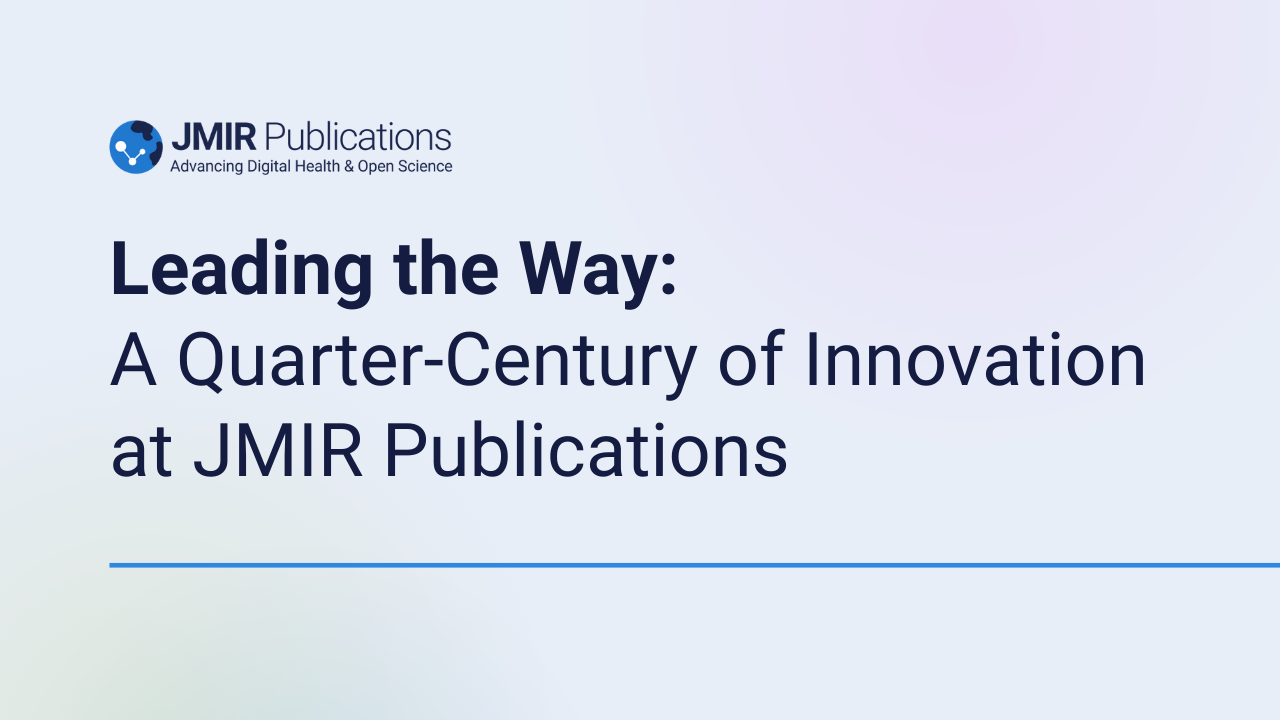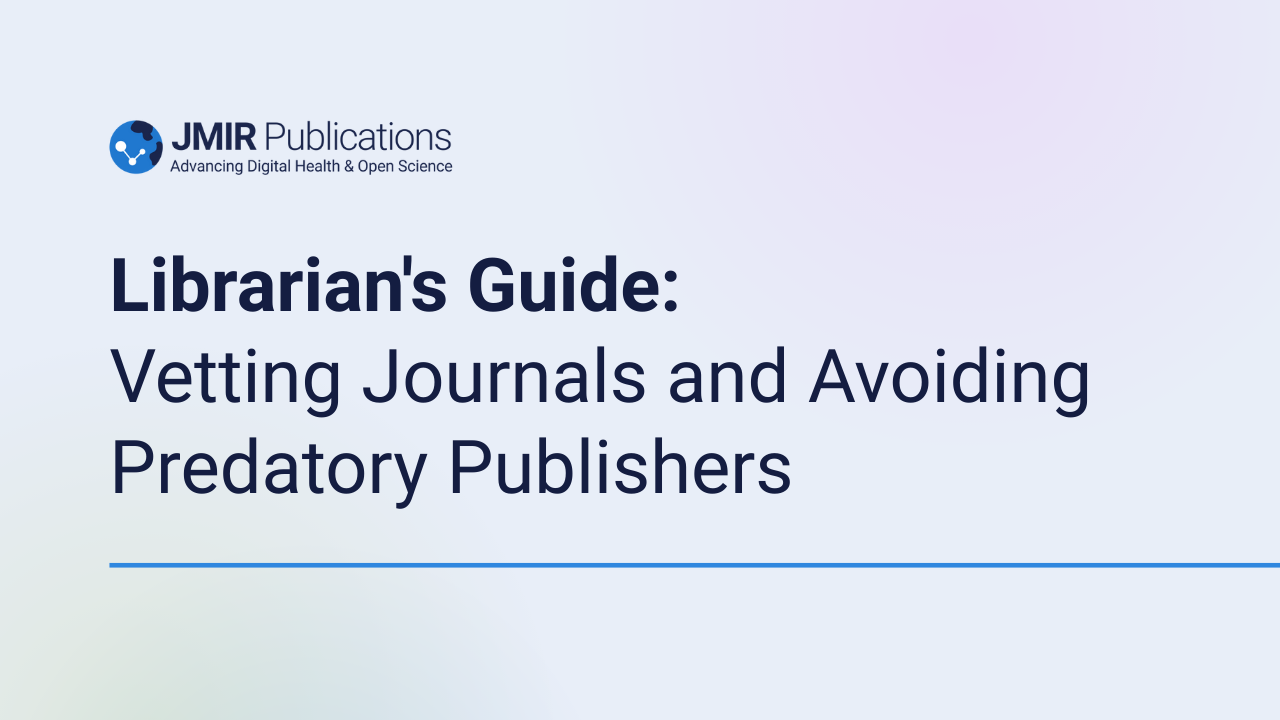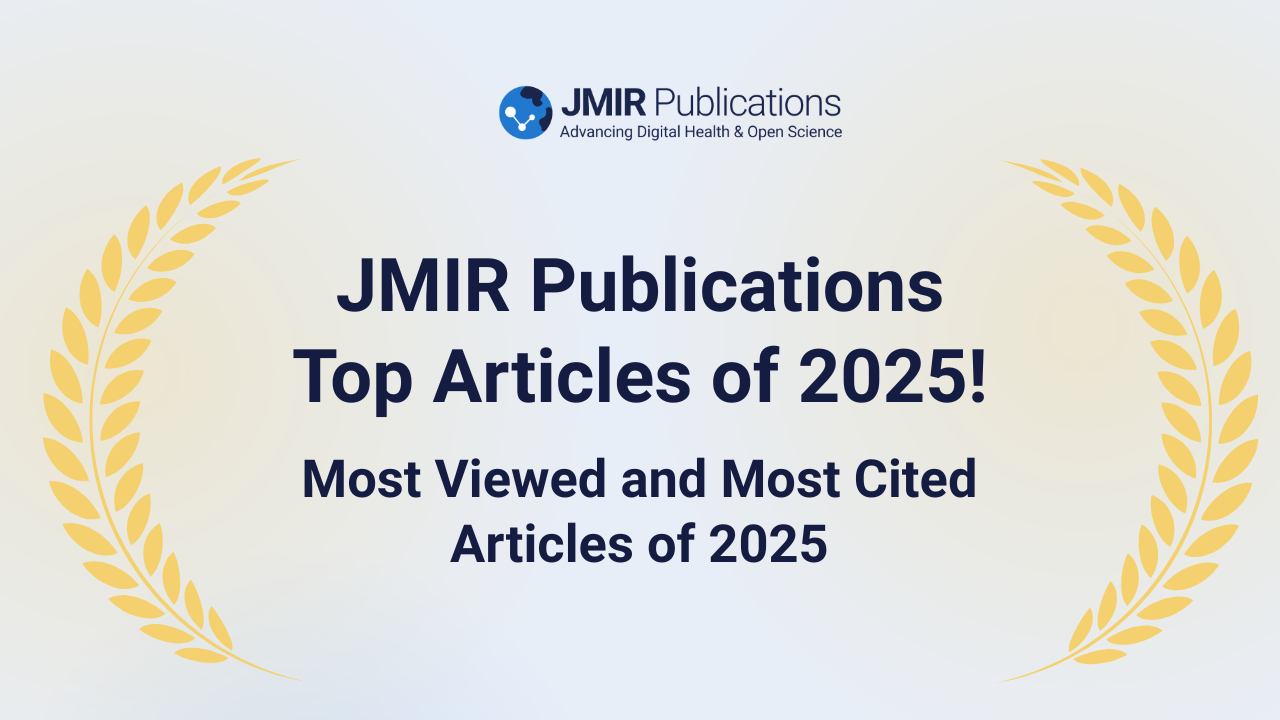Leading the Way: A Quarter-Century of Innovation at JMIR Publications
Since its inception in 1999, JMIR Publications has been more than just a publisher—it has been a laboratory for the future of scholarly communication. As one of the world's first open-access publishers, JMIR has consistently pushed the boundaries of how scientific knowledge is captured, shared, and preserved.


.png)

.png)



.png)

.png)